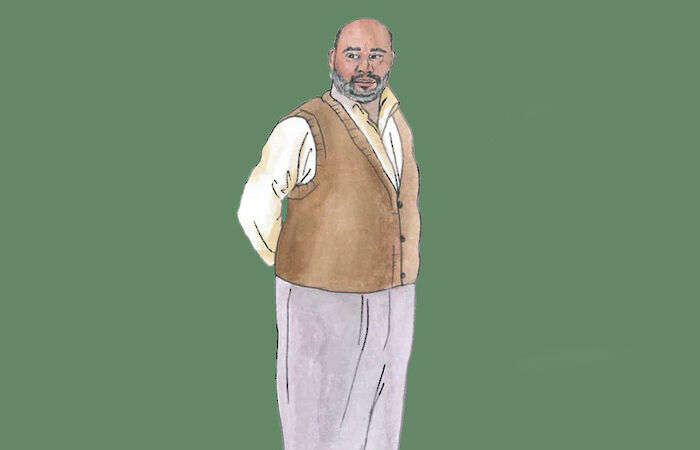We must bridge differences in order to create change
Oliver Moodie argues that we should approach student activism with the same syncretism of Utrus Horas by engaging in collaborative conversation

(Accompanying Piece: Orchestra Baobab – Utrus Horas)
Creating dialogue on contentious issues is difficult – creating change is even harder. After writing an article about my experience of racism at Cambridge last term, I found myself wondering how to make the ripples of student activism reverberate for longer and reach beyond my small pond of exposure.
For individuals to write an article elucidating their personal struggle, or institutions to release a statement condemning inappropriate activities is certainly a step in the right direction; however, it is not enough. Behind every article and every corroborating declaration is a group with a story to tell, which we would be remiss to limit to ink on a page.
“The group effortlessly depicts the musical syncretism I believe must be translated into our approach to change”
It may seem ironic that I’m writing an article about the limited utility of writing an article, but hear me out. Powerful penmanship is a fantastic tool for starting communication, especially around taboo or stigmatised subjects, but it must always only be a start. If change across the entire face of our environment is desired, conversation must be used to broaden the scope of discussion. Nevertheless, simple dialogue in itself is not sufficient. The conversations being had at the moment can feel isolated or esoteric, appealing repeatedly to the same people, who are already sympathetic to the ideas being pushed forward. So many important discussions are held at FemSoc events, but who is attending? Who is clicking on a link to an article about climate change? The comfort of discourse with like-minded individuals provides a space where personal experiences are validated, which is important, but is it sufficient in proselytising a new audience, or is it guilty of attempting to persuade the persuaded? Preaching to the converted in discussion forums, as is common, does little for changing current social climate.
So, what is the solution? I think it’s exquisitely illustrated by Orchestra Baobab’s Utrus Horas. This Senegalese outfit was formed in the 70s in Dakar - Senegal’s mecca of global music. It contains at minimum a saxophonist, guitarist, vocalist, timbalero and rhythm section. Their Afro-Cuban-folk amalgamation is a masterclass in cross-cultural communication, fusing son Cubano, Wolof and Mandé musical traditions from Cuba, Senegal and Mali, respectively. The eclectic song opens with rolling arpeggios on a guitar accompanied by a Cuban drum. The call is answered by a meandering trumpet which introduces the elegiac lyrics sung in a Portuguese creole, adopting slang phrases and proverbs from across the ethnosphere. The land of sonorous pleasures painted by the song conjures up images of a smoky bar with cigars and single-barrel rum. This is a presentation of Cuban and African cultures, which have historically had their differences, finding common ground through artistic expression. The group effortlessly depicts the musical syncretism I believe must be translated into our approach to change within the student body.
“Scorn serves no purpose but to cement the barriers segregating individuals and worsen the disconnect”
I completely respect and understand the need for closed groups at University. Forums like FLY and CUSU LGBT+ have done amazing work for culturing a sense of self-esteem and identity for people who feel underrepresented or marginalised. However, if we want change, we must open the conversation to those who are not directly affected by our own personal adversities. Open conversations have the potential to bridge the gap between impassioned individuals and the layperson, who doesn’t necessarily understand every personal strife viscerally.
I leave no illusion as to my own participation as the layperson. I have been educated by friends on issues ranging from identity crises in the Tamil community to Western ideology-driven miscegenation plaguing diasporic South Americans. These are issues that I am not intimately acquainted with, but they need to be discussed. If we cannot learn to communicate across our own borders, change will surely be slow to come. As individuals, we are a smorgasbord of privileges and challenges. Conversations that cause us cognitive dissonance should not be shirked away from, but probed sensitively, not necessarily at formal debates, but in a simple conversation with your neighbour while the kettle is boiling.
We must also understand that questions some may consider ignorant will inevitably be asked, but in order to change perceptions they must first be addressed, and no one should be berated for trying to erode their own misconceptions or naivety. Scorn serves no purpose but to cement the barriers segregating individuals and worsen the disconnect. A coalition of tolerance is a two-way street: no one’s opinion is more noble than another’s, and we all have the right to be heard.
In order to be paragons of change, we must grasp every opportunity to open dialogues across differences - men shouldn’t feel afraid to talk about feminism and LGBT+ activism needn’t be limited to those with that specific identity. Support should not be levied solely on the basis of relatability; much like Utrus Horas, comprehension of each other’s lives through collaborative dialogue, be it musical or verbal, can produce fruitful results for our society as a whole. This can be difficult, I know, because, ignorance more frequently begets confidence than it does knowledge, but it is a necessary enterprise all the same. The message to take away, then, is that the starting point for change is honest conversations with sincerity, openness and inclusivity at their heart, concerning topics affecting individuals from all different walks of life.
 News / Eight Cambridge researchers awarded €17m in ERC research grants27 December 2025
News / Eight Cambridge researchers awarded €17m in ERC research grants27 December 2025 News / Clare Hall spent over £500k opposing busway 24 December 2025
News / Clare Hall spent over £500k opposing busway 24 December 2025 Comment / League tables do more harm than good26 December 2025
Comment / League tables do more harm than good26 December 2025 Comment / The ‘class’ of Cambridge24 December 2025
Comment / The ‘class’ of Cambridge24 December 2025 News / Caius mourns its tree-mendous loss23 December 2025
News / Caius mourns its tree-mendous loss23 December 2025









